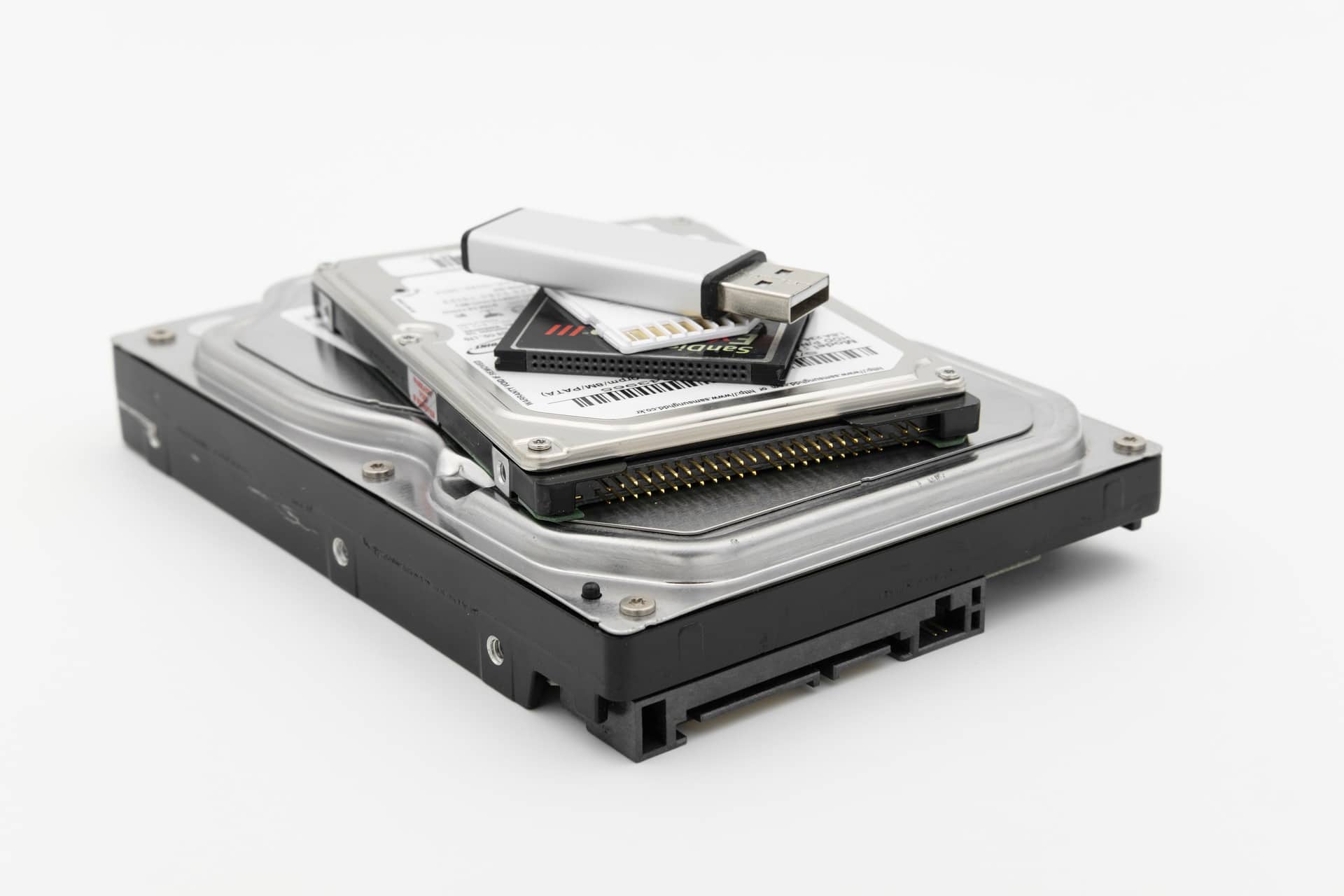What Data Remains?

When technology is ready to be upgraded, companies in Sioux Falls and beyond face many choices when getting rid of their equipment. Whether required by legislation, preventing a data breach, or just keeping proprietary information secure, all data stored must be properly removed before reselling, reusing or recycling.
What Types of Data Remain?
The huge amounts of data stored and managed in the workplace leaves hard drives and other data storage devices packed full of information that companies don’t want in the public eye or being used illegally. Even after files are deleted, they still remain.
Without proper wiping or hard drive shredding in accordance with current data security standards (NIST SP 800-88 Revision 1), organizations are at putting themselves at great risk if the following types of information when disposing of their computers and IT equipment in South Dakota, Iowa and Nebraska:
Employee Information
Regulations like HIPAA, the ECPA, and The Safe Harbour Privacy Principles are just a few requirements organizations must comply with when it comes to employee information. Data including employee history, social security numbers, dates of birth, positions, salaries, and addresses are commonly all saved in employee personnel files and managed by the Human Resources department.
Customer Information
Not only do you not want your customer and lead lists getting out to your competitors, but your customers definitely do not want their private information out there. 62% of consumers believe that companies are primarily responsible for the security of their information. Common customer information collected and stored by many businesses include personal information such as addresses, credit card numbers and even Social Security numbers.
Login and Passwords
Login details, including username, password and e-mail credentials are often saved to computers in a file, email or web history. Given the fact that people reuse passwords across platforms, if this information is breached its simple for hackers to breach multiple accounts.
Workplace Emails
Email is often the main form of communication for any company, be it healthcare, financial or legal. This fast way of communicating makes it easy for employees to share personal and confidential business information without a thought. Most email platforms automatically save emails to the hard drive for easy offline access. If this data ends up in the wrong hands, it can have devastating effects a company.
Social Security Numbers
Customer and employee social security numbers are often stored and managed in business files. If compromised, not only can identity be compromised, but also Social Security benefits.
Credit Card Information
Client credit card numbers, expiration dates, and security codes as well as any business credit card information saved from online purchases made by employees are all stored on business computers. Breaches of this type of valuable data can wreak havoc with fraudulent charges.
Proprietary and Confidential Information
Confidential company and personal information can be saved in e-mails, typed documents, videos, photos and pdfs. If a data breach occurs, these files can be easily retrieved with simple software even if they’ve been deleted from the computer or mobile device.
Internet Search History
Search engines keep logs of web history when searching online. This “web trail” holds valuable and personal information that should be wiped clean even after the computer goes offline.
While most workplace security is focused on the network, don’t forget about data security when computers are taken offline. The data that remains creates serious risk if not destroyed properly. Find an R2 or e-Stewards certified electronics recycling or resale company who can verify data destruction to industry standards, backed by proof of certification, certificates of destruction, and third party audits.
At SEAM, we take data security seriously. Learn how we can properly wipe or shred your hard drives in accordance with industry standards to keep your company in compliance and protect you from a data breach. Contact us today for a free quote.
SEAM provides IT recycling and data destruction services including onsite shredding and hard drive wiping to South Dakota, North Dakota, Minnesota, Iowa, and Nebraska.
Schedule a pickup or contact us for more information.





